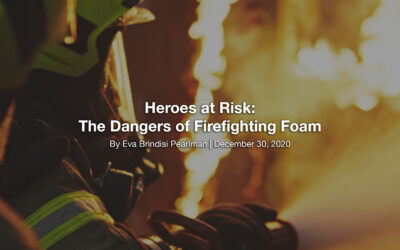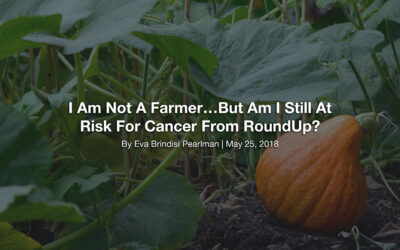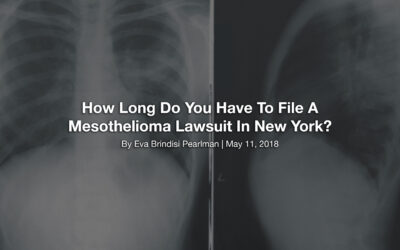After generating roughly $994 million dollars in net sales between 2013 and 2014, Monsanto Roundup is the most popular herbicide used to kill weeds in the United States. Monsanto has been around since the 1970’s but grew in popularity in the 1990’s after introducing “Roundup Ready” crops, genetically engineered to resist the herbicide so farmers are free to spray the product generously throughout their fields without concern for their crops. The main ingredient in Roundup is glyphosate. Roundup weed killer is used by both farmers and consumers not involved in agricultural work as it is available at your local hardware store for gardening, and various landscaping. However, farmers face the most exposure to Monsanto Roundup. As the weed killer is more frequently used, plants tend to build a higher tolerance to the Roundup concentrate. Thus, farmers must use more of the product, increasing their exposure to the harmful substance.
You may wonder… if it’s at my local home improvement store, can it really be that dangerous?
New reports have found that agricultural workers have suffered severe side effects from Roundup exposure that may lead to cancer. Just recently, the World Health Organization declared that glyphosate, the main ingredient in Monsanto’s weed killer Roundup, “probably” causes cancer. Monsanto denies any link between Roundup and cancer. However, the studies that have been published about glyphosate as a carcinogenic are sufficient to raise a cause for concern, including, one Swedish study in the International Journal of Cancer that concluded exposure to glyphosate doubled the risk of developing non-Hodgkin’s lymphoma within less than 10 years.
When studying Roundup’s possible link to cancer, researchers found glyphosate in the air, water, and food in settings where the product was sprayed. Therefore, Monsanto Roundup weed killer is not just dangerous to farmers, it is a danger to everyone in the community.
However, this news is not recent. Studies dating back to the 1980’s have found possible links to cancer. That is why agricultural workers, gardeners, and landscapers are coming forward and filing lawsuits against Monsanto alleging that they knowingly sold a carcinogenic product for decades and failed to warn its consumers.
In March of 2016, a California family filed a lawsuit against Monsanto, declaring that their father’s non-Hodgkin’s lymphoma was caused by using Roundup for nearly 30 years to tend his 20-acre fruit and vegetable farm, alleging wrongful death after he passed away in December of 2015 from a stroke due to complications from his cancer. In May 2016, four Nebraskan agricultural workers filed a lawsuit against Monsanto, blaming its Roundup weed killer for their non-Hodgkin’s lymphoma after many years of exposure. As of the beginning of August 2016, at least 26 Roundup lawsuits have been filed nationwide. Further, Monsanto is anticipating at least 200 more lawsuits being filed against them following denial of motions to dismiss in other cases.
If you’ve been diagnosed with cancer after exposure to Monsanto Roundup, you need The People’s Lawyer on your side. Monsanto knowingly put your life in danger and you need an experienced lawyer to help you get the substantial compensation you deserve. We will not let your voice get lost in the crowd. Contact Brindisi, Murad & Brindisi Pearlman for a free consultation today.
Share this blog with your friends…
Tags: Monsanto Roundup

CONTACT US FOR A FREE CASE EVALUATION
Related Blogs
Heroes at Risk: The Dangers of Firefighting Foam
Firefighting foam chemicals, nicknamed “forever chemicals,” have been linked to the development of cancer. The men and women who selflessly run towards danger every day are at the highest risk of AFFF cancer due to high exposure rates. It is believed that the...
I Am Not A Farmer…But Am I Still At Risk For Cancer From RoundUp?
Millions of homeowners spend hours on their yards to keep them neat and trim. An enemy of this process is something homeowners know all too well: weeds. In order to combat them, many turn to herbicides like Roundup. However, the ingredients in Roundup weed...
How Long Do You Have To File A Mesothelioma Lawsuit In New York?
For millions of Americans who have worked hard their entire life, retirement means finally relaxing and enjoying family. Unfortunately for some, their lifetime of work may come at a cost. After being exposed to asbestos many years ago, many victims are being...
Injured In An Accident?
Contact BMBP Today!






BRINDISI, MURAD & BRINDISI PEARLMAN
UTICA OFFICE
Utica, NY 13501
OFFICE HOURS
MONDAY – FRIDAY
9AM-5PM


